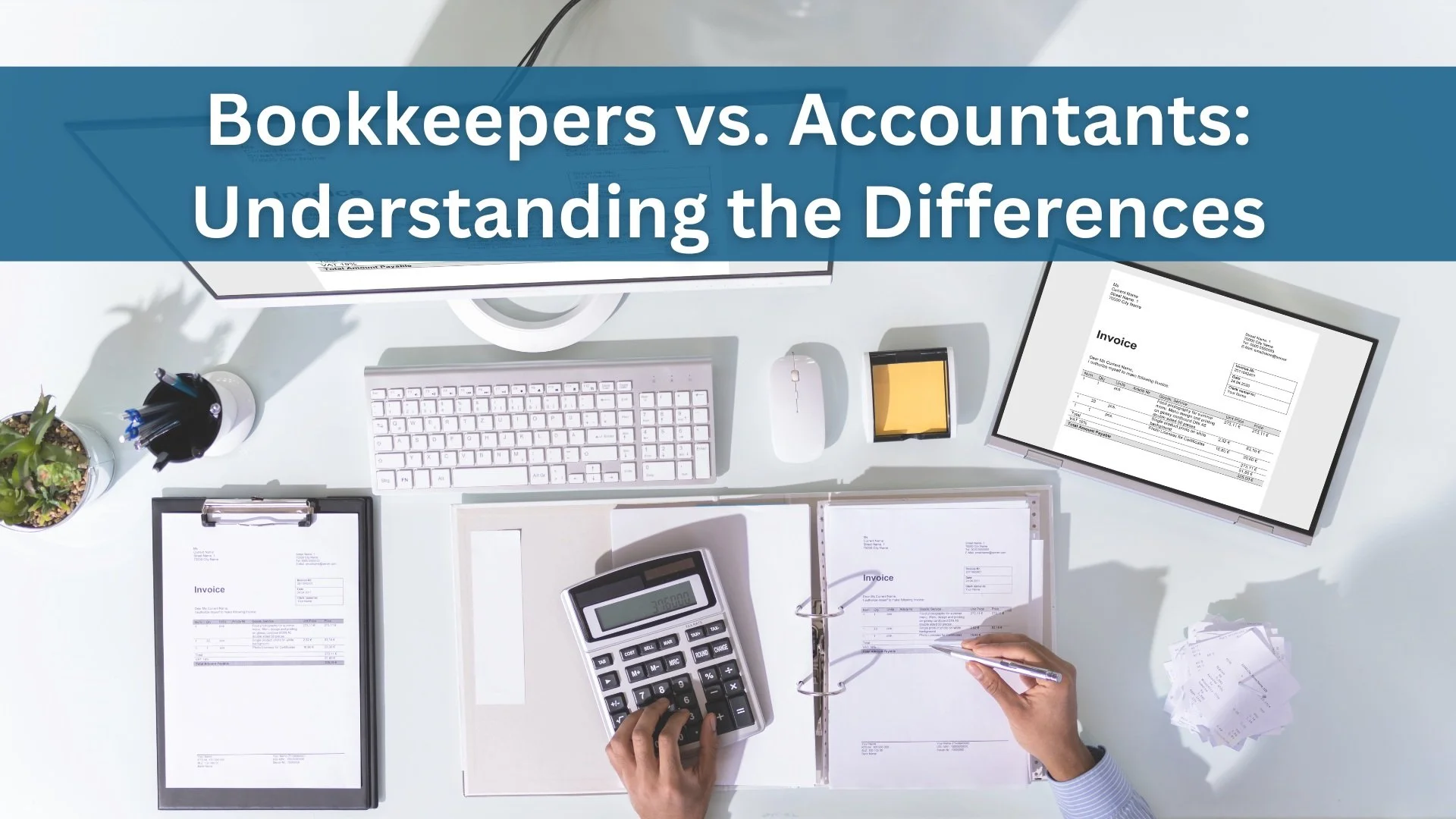Bookkeepers vs. Accountants: Understanding the Differences
Are you confused about the difference between an accountant and a bookkeeper? Many people use these terms interchangeably, but there are distinct roles and responsibilities for each profession.
Bookkeepers are primarily responsible for recording financial transactions. They handle tasks such as:
Recording daily transactions: This includes sales, purchases, and other financial activities.
Reconciling bank accounts: Ensuring that the balance in your bank account matches your records.
Preparing financial statements: Creating basic financial reports like income statements and balance sheets.
Managing accounts receivable and payable: Tracking money owed to and by your business.
Tax preparation: Preparing and filing your business's tax returns.
Financial planning: Developing strategies for achieving your business's financial goals.
Auditing: Reviewing financial records to ensure accuracy and compliance.
Consulting: Providing expert advice on financial matters.
When should you hire a bookkeeper or accountant?
Small businesses often benefit from hiring a bookkeeper to handle their basic accounting needs.
Larger businesses may require the services of both a bookkeeper and an accountant to manage their complex financial affairs.
Whether you need a bookkeeper or an accountant depends on the specific needs of your business. By working with a qualified professional, you can ensure that your finances are in good hands and that your business is on a solid financial footing.
If you're looking for a reliable bookkeeper, consider contacting us below. We offer a range of bookkeeping services tailored to meet the needs of any business!





